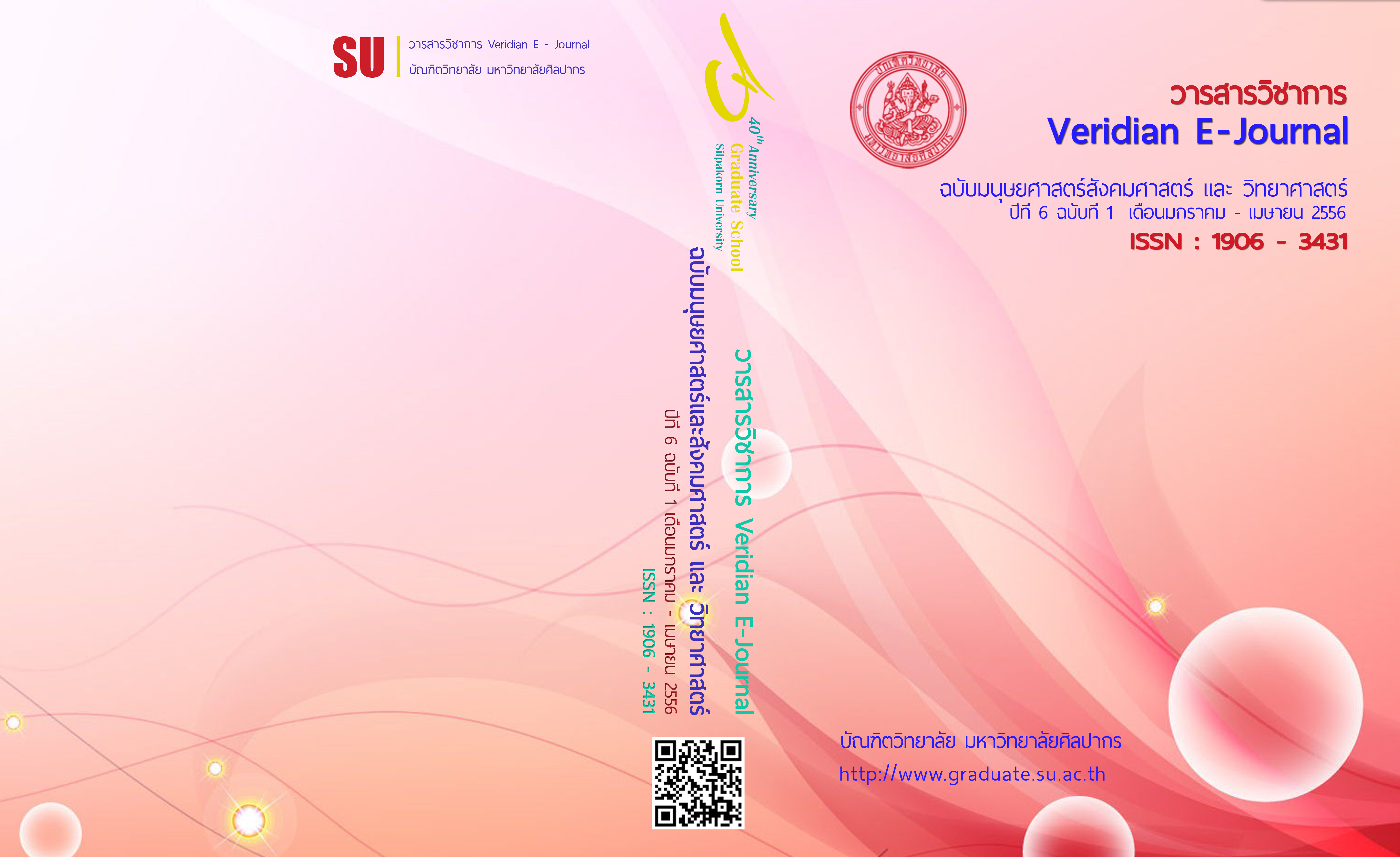การสำรวจผู้ให้บริการในการใช้ยานอร์ทริปไทลีนเพื่อบำบัดผู้ติดบุหรี่
Main Article Content
Abstract
บทคัดย่อ
รูปแบบที่ใช้บำบัดเพื่อเลิกบุหรี่ คือ พฤติกรรมบำบัด (Non-pharmacologic Therapy) และการให้ยา (Pharmacologic Therapy) ได้มีการนำกลุ่มยาต้านความเครียด(antidepressants) (H. McRobbie, M. Lee, Z. Juniper. Non-nicotine pharmacotherapies for smoking cessation Respiratory Medicine (2005) 99, 1203–1212) ยาบูโพรไพออน (bupropion) และ ยานอร์ทริปไทลีน (nortriptyline) มาใช้บำบัดเพื่อเลิกบุหรี่ โดยยาอันดับแรก(first-line drug) คือ ยาบูโพรไพออน แต่เนื่องจากยานี้มีราคาค่อนข้างสูง จึงทำให้เกิดปัญหาสำหรับผู้ที่ต้องการเลิกบุหรี่ ในการเข้าถึงยาดังกล่าว จึงได้มีแนวคิดในการพิจารณาความเหมาะสมของยาที่ราคาไม่แพง เช่น ยานอร์ทริปไทลีน เพื่อให้สามารถใช้เป็นยาอันดับแรกของการบำบัดการเลิกบุหรี่ การศึกษาครั้งนี้ใช้รูปแบบการสำรวจทัศนคติต่อการใช้ยานอร์ทริปไทลีนเพื่อการเลิกบุหรี่ของกลุ่มผู้ประกอบวิชาชีพในคลินิกฟ้าใส หรือคลินิกอดบุหรี่ทั้งภาครัฐและเอกชน จำนวนทั้งสิ้น 355 คน ในช่วงเดือนมิถุนายน-กรกฎาคม 2554 และ จัดสนทนากลุ่มตัวแทนเครือข่ายวิชาชีพที่เกี่ยวข้องกับการให้บริการเลิกบุหรี่ จำนวน 6 คน
ผลการศึกษาการให้บริการเลิกบุหรี่ของไทยนอกจากจะมีการใช้ยานิโคตินแล้วยังมีการใช้ยาอื่นๆ ได้แก่ ยาเวรานิคลิน (Varenicline) ยาบูโพรไพออน และ นอร์ทริปไทลีน ร่วมในการบำบัดการเลิกบุหรี่ด้วย แม้ว่าการใช้ยานอร์ทริปไทลีน เพื่อช่วยเลิกบุหรี่เป็นการใช้ยานอกข้อบ่งใช้ที่ได้ขึ้นทะเบียนยาไว้ (Off-label indication) แต่ร้อยละ 32.2 ของสถานให้บริการเลิกบุหรี่ใช้ยานี้เพื่อช่วยให้ผู้มารับบริการสามารถเลิกบุหรี่ และในมุมมองของผู้ที่ใช้ยานี้ในการบำบัดผู้ที่ต้องการเลิกบุหรี่ เห็นว่ายานี้มีประสิทธิผลดีในการบำบัดผู้ที่ต้องการเลิกบุหรี่ อาการข้างเคียงจากการใช้ยานอร์ทริปไทลีนที่พบบ่อยคือการทำให้เกิดอาการง่วงนอน ผู้ที่ให้บริการเลิกบุหรี่มีทัศนคติต่อประสิทธิผล ราคา และด้านอาการข้างเคียง ของยานอร์ทริปไทลีนที่ใช้เพื่อบำบัดการเลิกบุหรี่ ในระดับปานกลาง ค่อนไปในระดับดี ซึ่งสอดคล้องกับผลสำรวจที่พบว่าร้อยละ 53.8 ของผู้ที่เลือกใช้ยานอร์ทริปไทลีนร่วมในการให้บริการเลิกบุหรี่ เพราะปัจจัยด้านประสิทธิผลของยา ร้อยละ 33 เลือกใช้เพราะความคุ้มค่าของราคากับประสิทธิผล แต่อย่างไรก็ดีคะแนนความตั้งใจ (intention to use) ที่จะใช้ยานอร์ทริปไทลีนเพื่อให้บริการบำบัดการเลิกบุหรี่นั้นมีเพียงร้อยละ 50 เท่านั้น ดังนั้นการส่งเสริมให้มีการใช้ยานอร์ทริปไทลีนเพื่อช่วยในการเลิกบุหรี่ จึงจำเป็นต้องมีการรับรองข้อบ่งใช้นี้ในทะเบียบยานอร์ทริปไทลีน แต่การเพิ่มข้อบ่งใช้ใหม่ เข้าข่ายของการขอขึ้นทะเบียนยาใหม่ ซึ่งต้องแสดงข้อมูล ประสิทธิผล ความปลอดภัย ของยาประกอบการพิจารณา จึงทำให้ผู้ประกอบการประเมินว่าต้นทุนในการขอเพิ่มข้อบ่งใช้ใหม่ของยานอร์ทริปไทลีนน่าที่จะสูงเกินไปสำหรับตลาดของยานอร์ทริปไทลีนในประเทศไทย ที่มีปริมาณการขายไม่มาก แต่อย่างไรก็ดีหากมีหน่วยงานกลางที่สนับสนุนข้อมูลสำหรับการขอขึ้นทะเบียนยานอร์ทริปไทลีนในข้อบ่งใช้ใหม่นี้ กลุ่มผู้ผลิตยาก็ยินดีที่จะดำเนินการในการขอเพิ่มข้อบ่งใช้ใหม่ในทะเบียนยา
Abstract
Pharmacologic and non-pharmacologic therapy have been successfully used to assist patients in quitting smoking. Antidepressants such as bupropion and nortriptyline were accepted for smoking cessation. The high price of bupropion, the first-line drug is the major barrier to access this drug for smokers willing to quit. Considering low price nortriptyline to be alternative the first-line drug was addressed in Thailand. Attitude survey toward using nortriptyline for smoking cessation in 430 health professionals who practiced in public or private smoking cessation clinics and drug stores were conducted by questionnaire during 2011 June – July. Focus group meeting was participated by Thai health professionals’smoking cessation network on October 5, 2011.
The study revealed that nicotine, varenicline, bupropion and nortriptyline were dispensed in smoking cessation clinic. Although indication of nortriptyline for smoking cessation is off-label indication but it was used by 32.2% of smoking cessation clinics. In professional’s perspective, nortriptyline was effective for smoking cessation. Their experience about adverse drug reaction (ADR) of this drug was drowsiness. Their attitude toward efficacy, price and ADR of nortriptyline for smoking cessation were good. According to survey data, efficacy of nortriptyline and its cost-effectiveness were accepted to co-dispense by 53.8% and 33% of smoking cessation providers, respectively. About haft smoking cessation providers, had intention to use nortriptyline for next smoking cessation service. To encourage using nortriptyline in smoking cessation clinic, it must be approved by Thai FDA for smoking cessation indication. But access to efficacy and safety data of nortriptyline in new indication for registration was not cost- effective in drug manufacturer’ perspective. If there is some agent provide these data for registration, it will be possible to add new indication for nortriptyline.

